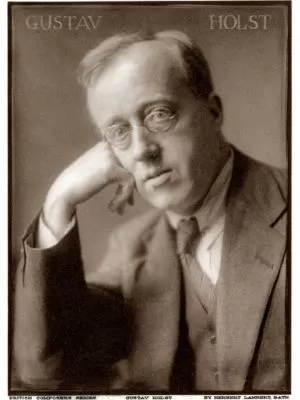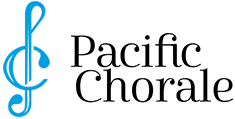Gustav Holst
Composer
Gustav Holst (1874–1934), a lifelong teacher by profession, enjoyed brief popularity as a composer in the early 1920s based on an orchestral suite entitled The Planets—ironically, a work he thought not to be among is best. Interest in his music faded thereafter, and his compositions were often criticized as “too cerebral.” This was a great relief to Holst, for whom notoriety was a burden, as it freed him to compose as he pleased. Psalm 148 is one of the Two Psalms, early works from 1912, a decade before The Planets. Little is known of their origins. For both pieces, Holst chose Psalm texts that had been adapted into “metrical” form, in which each verse has the same number of syllables and can therefore be sung, like hymn verses, to the same melody. He then selected from the Anglican hymnal tunes suitable to his chosen words.
The melody to “Psalm 148” will be familiar to many as the hymn “All Creatures of Our God and King,” with its distinctive “alleluias.” Holst set four verses, the first in a simple, hymnlike setting for chorus with an extended elaboration of the “alleluias.” Verse 2, which commands the powerful waters to praise God’s strength, is assigned to the men of the choir, and verse 3, an appeal to the flowers to praise God for their beauty, is given to the women. The closing verse is a magnificent fugato (brief imitative section) on the hymn melody, written over an augmentation (the same melody at half speed) in the bass. Gradually, the parts coalesce into a final, exultant “alleluia” in long, block chords to end the Psalm in jubilation.
— Gordon Paine
